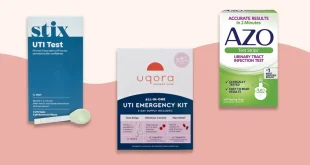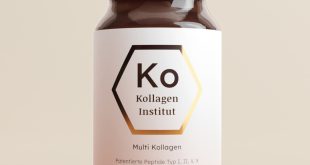One of the most important things you can do to maximize the impact of your cancer treatment and help you recover faster is to get yourself in the best possible nutritional state. On our website you can read about the changed nutrient requirements, the main obstacles to proper nutrition, the role of special nutrients.
Many food and eating habits work as natural cancer cures and help reduce the risk of developing cancer.
1. Peppers are one of the best tools in the fight against cancer due to their huge vitamin C and A content, folic acid and potassium content.
2. Cabbage, broccoli, cauliflower, kale, brussels sprouts, radishes, turnips, and horseradish belonging to the cruciferous family all contain plant active ingredients that inhibit the entry of carcinogens into the cells and prevent the development of tumors.
3. Cranberries, raspberries and strawberries are fruits rich in vitamin C and folic acid, as well as high in fiber and potassium. They have a strong antioxidant effect, ie they bind harmful free radicals in the body.
4. Water (mineral water, spring water, soda) and decaffeinated tea are the best fluids for the body. These beverages play a huge role in digestion, food transmission and absorption, and temperature regulation. They have an appetite suppressant effect and also help with weight control. It is recommended to consume at least 1.5-2 liters of fluid per day!
5. Lycopene found in various tomato sauces, sauces and ketchup has a strong antioxidant effect. It greatly reduces the risk of prostate and other cancers, and plays a significant role in slowing down the aging process and fighting other diseases.
6. The healthiest fats are vegetable oils, especially cold and pressed virgin olive oil without heat and chemical intervention, which contains a lot of vitamin E and other antioxidants.
7. Apples, especially fruit peels, contain active ingredients that inhibit the growth of cancer cells.
8. The carotene content of pumpkin, sweet potatoes and zucchini, especially beta-carotene, is an important ingredient in cancer.
Diet of cancer patients before treatments
When cancer is suspected, an investigation process is initiated and then the diagnosis is finally made. An additional waiting time is then required for anti-tumor treatments to begin.
Even during the waiting period, proper nutrition is very important in order to get the body in the best possible nutritional state by the time anti-cancer treatment is started.
These treatments are a burden on the body. Patients who are in good nutritional status tend to have fewer side effects, those that appear milder, and the regeneration process is more favorable between treatments. Malnourished patients may be much more tolerant of side effects and expect a longer hospital stay.
Consuming the right amount and diet of a balanced nutrient can improve nutritional status and stabilize body weight. 5 meals a day are recommended, of which 3 main meals (breakfast, lunch and dinner) should always include foods of animal origin e.g. meat, dairy or eggs. Fruits and vegetables can be eaten for the 2 small meals (ten o’clock and snack).
During a healthy diet daily:
- 2-3 units of meat and meat products should be consumed
- 3-4 units of dairy product
- 5-8 units of vegetables and fruits
- 5-9 units of cereals
How much do we eat for a meal and all day?
It depends on how old we are, what our body weight is, whether we do physical work, do sports or what the nature of our illness is. Because each of our foods has a different nutrient composition, it is difficult to determine how much of what we eat. It is simpler to ignore complicated, lengthy calculations and think more in units.
Diet of cancer patients between treatments
Antitumor treatments put a strain on the body, which is why it is recommended to follow a diet that is gentle on the body and provides the energy, protein, vitamins and minerals needed for regeneration. You should only eat which foods kill cancer cells.
- Lean meats and cold cuts are recommended, especially cooked and steamed, not fried in plenty of oil.
- If one does not want meat, it is necessary to increase the consumption of eggs and dairy products so that we can provide the body with the right amount of protein.
- In case of milder lactose sensitivity, choose dairy products poorer in lactose / lactose, e.g. yogurt, cottage cheese, hard cheese, if very sensitive, choose “lactose / lactose free” dairy products.
- In case of diarrhea, it is recommended to consume a lower fat dairy product e.g. skimmed cottage cheese, low-fat, light cheeses.
- In the case of stenoses developed during radiation therapy for severe diarrhea or in the abdominal area, we limit the consumption of vegetables and fruits containing coarse fiber, e.g. consumption of dry legumes, peas, seeds.
- During severe diarrhea and in case of intestinal stenoses, we limit the consumption of baked goods made from whole grains, as well as breads enriched with bran and oilseeds, as well as dry pasta made from whole grains and brown rice.
 The Care Up
The Care Up




